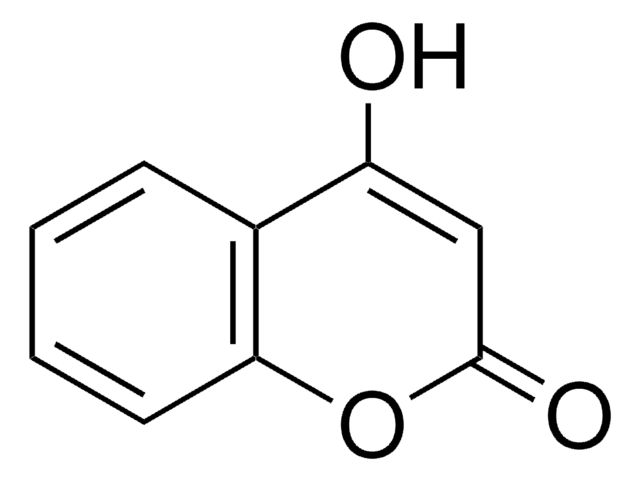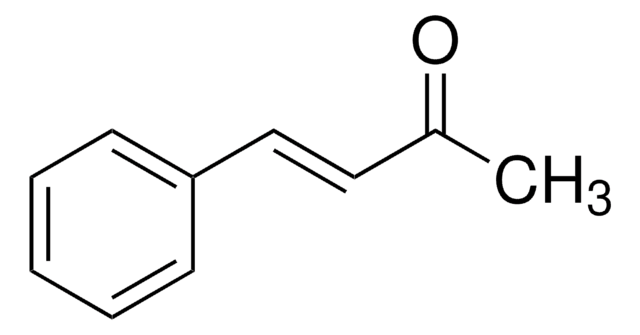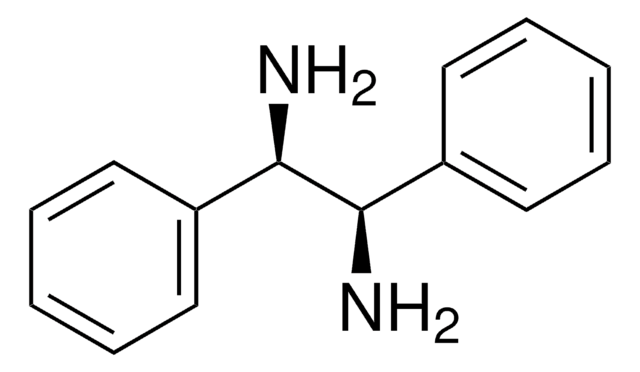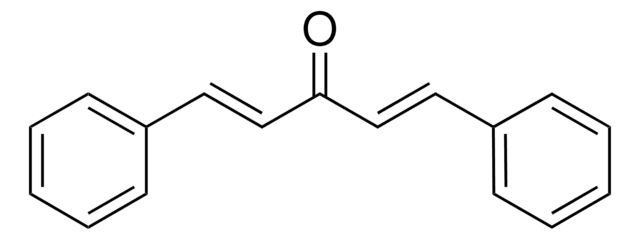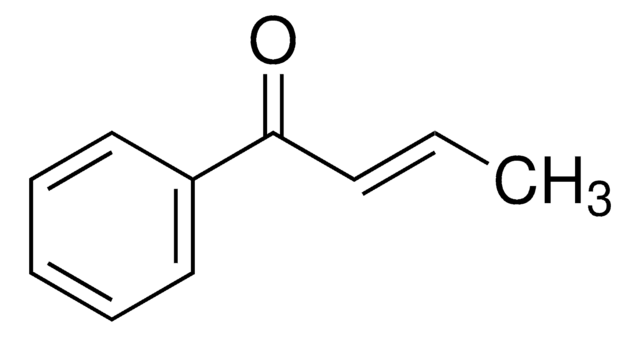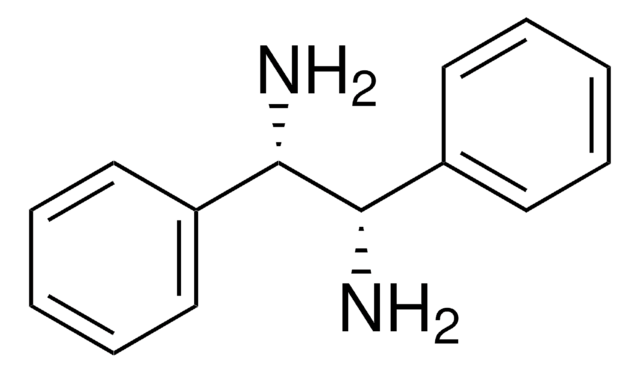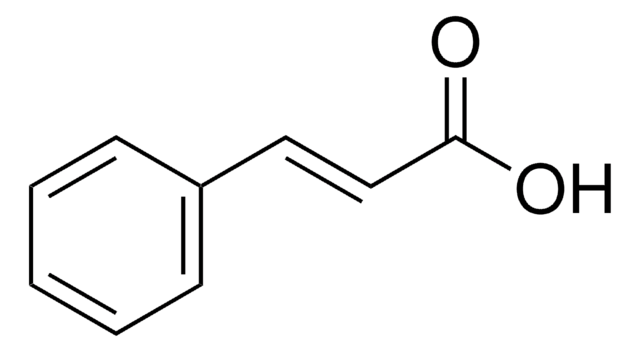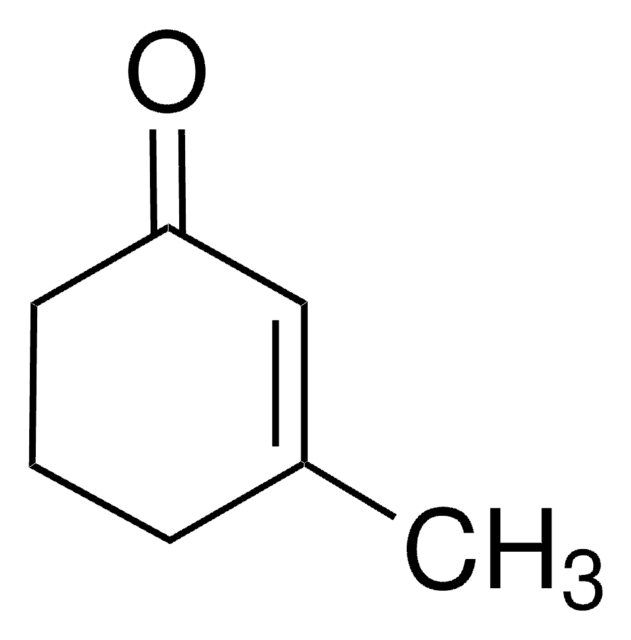241091
trans-4-Phenyl-3-buten-2-one
≥99%
About This Item
Produits recommandés
Pression de vapeur
0.01 mmHg ( 25 °C)
Niveau de qualité
Pureté
≥99%
Forme
solid
Point d'ébullition
260-262 °C (lit.)
Pf
39-41 °C (lit.)
Solubilité
alcohol: freely soluble(lit.)
benzene: freely soluble(lit.)
chloroform: freely soluble(lit.)
diethyl ether: freely soluble(lit.)
petroleum ether: very slightly soluble(lit.)
water: very slightly soluble(lit.)
Groupe fonctionnel
ketone
phenyl
Chaîne SMILES
CC(=O)\C=C\c1ccccc1
InChI
1S/C10H10O/c1-9(11)7-8-10-5-3-2-4-6-10/h2-8H,1H3/b8-7+
Clé InChI
BWHOZHOGCMHOBV-BQYQJAHWSA-N
Catégories apparentées
Description générale
Mention d'avertissement
Warning
Mentions de danger
Conseils de prudence
Classification des risques
Eye Irrit. 2 - Skin Irrit. 2 - Skin Sens. 1 - STOT SE 3
Organes cibles
Respiratory system
Code de la classe de stockage
11 - Combustible Solids
Classe de danger pour l'eau (WGK)
WGK 3
Point d'éclair (°F)
>230.0 °F
Point d'éclair (°C)
> 110 °C
Équipement de protection individuelle
dust mask type N95 (US), Eyeshields, Faceshields, Gloves
Faites votre choix parmi les versions les plus récentes :
Déjà en possession de ce produit ?
Retrouvez la documentation relative aux produits que vous avez récemment achetés dans la Bibliothèque de documents.
Les clients ont également consulté
Notre équipe de scientifiques dispose d'une expérience dans tous les secteurs de la recherche, notamment en sciences de la vie, science des matériaux, synthèse chimique, chromatographie, analyse et dans de nombreux autres domaines..
Contacter notre Service technique